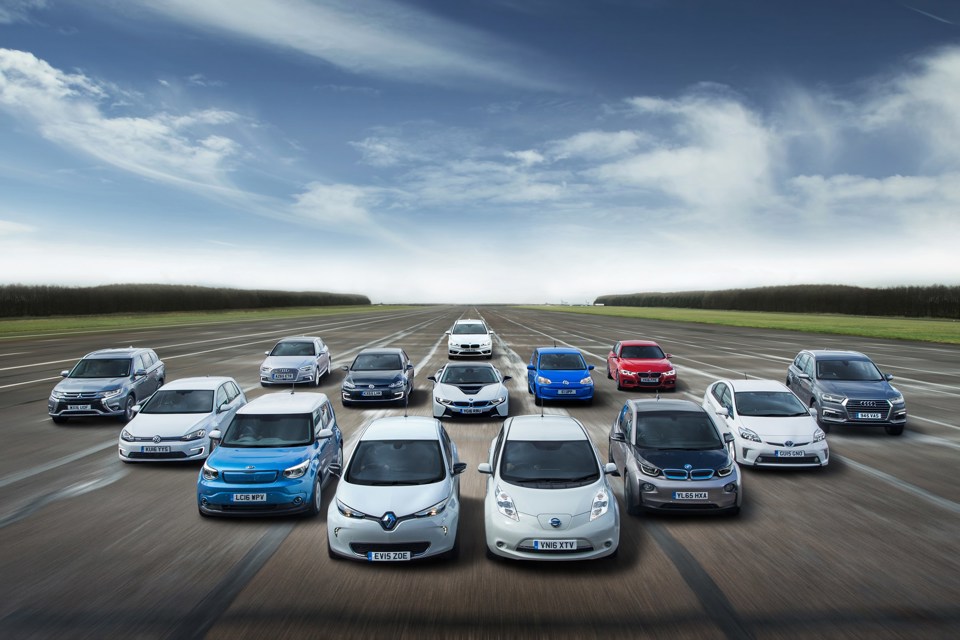The Government is being advised to bring forward its ban on the sale of new petrol and diesel cars from 2040 to 2030, in a new report from the Committee on Climate Change.
It’s part of an ambitious new proposal to reduce the UK’s greenhouse gas emissions to zero by 2050.
Lord Deben, chairman of the Committee on Climate Change, said: “We can all see that the climate is changing and it needs a serious response. The great news is that it is not only possible for the UK to play its full part – we explain how in our new report – but it can be done within the cost envelope that Parliament has already accepted. The Government should accept the recommendations and set about making the changes needed to deliver them without delay.”
The report calls for a substantial investment in electric vehicle charging infrastructure to make the switch possible.
It says the UK would require 3,500 rapid and ultra-rapid chargers near motorways to enable long journeys and 210,000 public chargers in towns and cities. Today, in total, there are 21,000 public chargers of all speeds.
Existing environmental policy has already reduced greenhouse gas emissions by 40% since 1990, but emissions from transport have increased by 6% since 2013 and are now 4% higher than in 1990. Although vehicles have become more fuel efficient, this has been offset by increasing travel demand.
The ambition is for all cars and vans on the road to be electric by 2050, leaving aviation and agriculture as the highest emitting sectors.
Recognising the current battery supply issues affecting the volume of electric cars that are currently available, the report states that the 2030 ban could be shifted to 2035 if needed.
According the Committee on Climate Change, a shift to electric cars in the shorter term will save the country around £1bn per year by the early 2020s.
The report fails to outline how the Government will recoup the lost revenue from company car tax, fuel tax and VED but suggests that financial incentives for EVs could be removed once they achieve price parity with equivalent petrol or diesel models.
Jonathan Bray, director of the Urban Transport Group, supports the report. He said: “This advice is unequivocal: achieving net zero carbon emissions by the middle of the century is possible and affordable, but national policies must be ramped up to make this target credible.
“Nowhere is this more apparent than in the transport sector – the single biggest contributor of UK greenhouse gases. The Committee has set out a clear route map for how to tackle transport emissions, from stronger ambition on electric cars and vans, further encouragement of walking, cycling and public transport to avoid car dependency, and a rolling programme of rail electrification – measures we support.”
Transport wasn’t the only target in the report, which outlines a variety of initiatives that can reduce emissions in all sectors.




















Les Bailey - 05/05/2019 09:19
Where is all the cobalt going to come from for the batteries? I may be wrong but does ethics go out the window when young children are digging it.We can get it from the ocean in the future,what about marine life does that suddenly not matter.A lot of the people pushing for electric vehicles have no knowledge of the already developed diesel and petrol engines which are very clean emissions wise and are so hypercritical by the use of planes short journeys in taxis (MP’s), central heating boilers, and I believe clothes are massive pollutions in the making. To sum up No Petrol No Diesel No Gas How do we manufacture products ? The answer is does not matter China America,Korea and any other country who decides to ignore are climate rules.Maybe they will look at new technologies and see diesel and petrol are not so bad after all. What do they say “mad dogs and English men only go out in the midday sun.Not enough sun in England for all the power we need for solar panels.Now if someone invented rain panels we have a chance